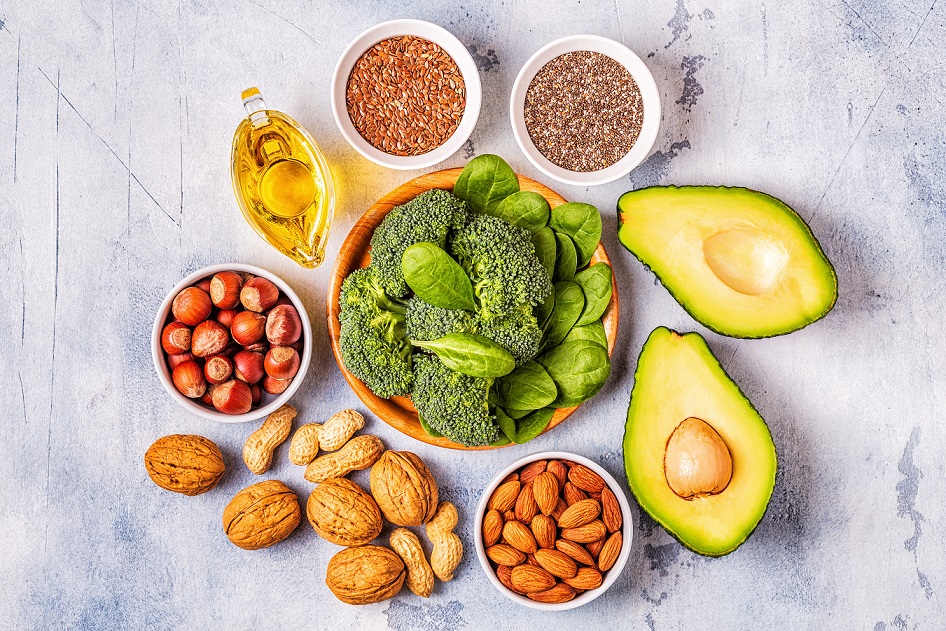With more people opting to follow specific diets such as vegetarianism and veganism, there is an increased chance of a prevailing nutritional deficit, especially in certain essential nutrients that the body does not synthesize on its own. Some of these are Vitamins, dietary minerals, amino acids and essential fatty acids.
Out of these, vegans and vegetarians may have an increased probability of missing out on Omega 3 fatty acids’ required intake because their primary food source is fish, fish oil and seafood. Clinical studies even suggest Omega 3 fatty acid are depressed in vegetarians, especially in vegans.
TrueBasics Omega 3 fatty acids are a group of healthy polyunsaturated fats that are needed for the normal functioning of many processes in the body. They are of three types – Alpha-Linoleic Acids (APA – derived from plant sources), Eicosapentaenoic acids (EPA) and Docosahexaenoic acids (DHA). Both EPA and DHA are derived from seafood and fish oil. These fatty acids are vital for our body’s proper functioning and have potent cardioprotective properties with regulated intake and prolonged use.
While the daily recommended dietary allowance of TrueBasics Omega 3 fatty acids is around 200-500 mg a day , the exclusion of marine food such as fatty fish, oysters from one’s diet makes it very difficult to meet. There is a significant imbalance of Omega-3 fatty acid levels in vegetarian and vegan diets.
This is further sustained by the fact that there has been a massive drop in the nutritional levels of plants owing to the industrial shift in agricultural processes such as employing the use of fertilisers and pesticides instead of practising organic farming.
It is suggested that Vegetarians should double the current adequate intake of ALA if no direct sources of EPA and DHA are consumed.
Even though plant-based sources like kale and spinach contain a good amount of Omega-3 fatty acids, they fail to meet the minimum recommended intake requirements. Flaxseed is known to be one of the best plant sources for Omega-3 fatty acids, offering 22815mg of the nutrient per 100gm. Other sources like hemp, kidney beans, walnuts, or seaweed are also rich in Omega-3. However, all of these (including flaxseed) are not a part of our daily diet. Even if we consume them every day, they are not consumed in the quantity that helps meet the daily required intake of Omega-3.
Due to these limited options, Omega-3 levels are extremely low among vegetarians and virtually absent among vegans, causing a significant deficiency in the plasma, blood, and tissue levels of EPA and DHA. Therefore, it is advisable and beneficial for vegans and vegetarians to supplement their diet with Omega-3 supplements.
Vegetarians who experience increased needs of Omega-3 fatty acids or delayed conversion abilities may benefit from consuming microalgae-based EPA or DHA supplements.
Besides, Truebasics Vegan Omega is a great option to consider. A blend of specially formulated Non-GMO, 100% vegetarian Omega-3 fatty acids, this supplement has been designed to fulfill your day’s omega-3 requirement in a single dose. It contains PKVNL 60 — an advanced variety of flaxseed that has been developed under the National Agricultural Innovation Project to provide the most potent extract of Omega-3 fatty acids.
Therefore, consuming just one pill a day, post-dinner, at bedtime can help offer the same amount of Omega 3 Fatty Acids as are available through any fish oil supplement. This makes TrueBasics Vegan Omega the most appropriate option of Omega-3 supplementation for vegans and vegetarians. Consume it daily to reap the benefits for heart health, mental wellness, and joint health.













